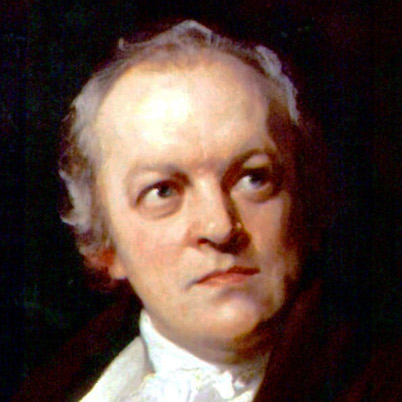CRITICAL ANALYSIS- This poem has the potential to be read on various levels. To each of us, the poem reads differently. Few of the levels, however, are the most important and apparent. On the literal level, the poem is simply about the theft of a boat by the young Wordsworth and the aftermath of which left him deeply troubled. The aftermath was his encounter with the grim form of a huge mountain that seemed to pop up suddenly in his line vision. The suddenness and the immense stature of the mountain left him flabbergasted and frightened. He felt as if the mountain was reprimanding him for stealing the boat by chasing after him. But what scared the young poet the most was the shapes they formed in his sleep. He felt they were inhuman giant-like creatures who were after him.
Metaphorically read, the mountain, that is, the ‘grim Shape’ can be interpreted as the poet’s conscience at having stolen the boat. The poet admits that stealing the boat was an act of ‘troubled pleasure’. Deep down, he knew the impropriety of his act. It is only after he acknowledges the guilt that he sees the mountain looming up behind the craggy hill. You may go through the detailed summary of Stolen Boat here.
If the poem is interpreted spiritually, then the encounter Wordsworth has with the image of the mountain can be seen Wordsworth’s encounter with his own self, his inner fears. As a young boy, Wordsworth was enamored by nature. He thought he was familiar with all its temperaments. But on the evening of the boat stealing incident, he saw a different side of his beloved nature. It led him to question nature and his own self and understanding. He found himself face-to-face with a new ‘being’, that was almost human yet not human. Witnessing the new side of nature he thought he knew so well, he also witnessed the birth of a new self. And the reason the incident haunted him so was because he faced his inner fears as a fugitive and because he realized that nature had a side to it that was not inert.
Although the poem is a recounting of the poet’s own experience as a child, it can be applied universally. We all fear what we don’t know. The spectacle of the ‘mighty Form’ is emblematic of the inherent fear in us of the unknown. Wordsworth pens down what our innermost fear is and explains through this incident. As a young boy too he knew that what happened to him was extraordinary. And he feared it. It thus tells us that the fear of the unknown is innate. The child poet was not familiar with the immensity of the particular mountain and in the evening, when the light is low, the sudden upreared peak of the mountain scared him because he did not understand what it was or what it meant.
Other than these readings, the poem can be seen as the premise or beginning of the young Wordsworth’s adolescence. The act of stealth, which gave him ‘pleasure’ albeit troubled, is often linked to follies of youth. Furthermore, the lines,
‘She was an elfin Pinnace; lustily/I dipped my oars into the silent lake,/And, as I rose upon the stroke, my boat/Went heaving through the Water like a swan’ have strong sexual connotations to it. Here he attributes a feminine pronoun to the boat. Also, the dipping of his oars ‘lustily’ and ‘heaving’ alludes to sexual activities. It is interesting to note that he gives nature the pronoun she and her as well. Then it is not difficult to fathom the sexual connotation in this poem. In this sense, the poem is about coming of age.
Nature as superior- as dangerous as it’s beautiful. Act of stealth compensated by nature. retribution.
POETIC DEVICES in Stolen Boat by William Wordsworth
‘nor without the voice/Of mountain-echoes did my boat move on’- This is an instance of personification. Personification is a figure of speech where an inanimate or abstract quality is given human qualities. The mountain, in this case, is an inanimate object but it is given human characteristics in the form of voice. Thus, the mountain is personified as a human being in this extract.
‘my boat/Went heaving through the Water like a swan’- this is an instance of simile. Simile is a figure of speech where two things are compared in direct terms such as ‘like’ or ‘as’. Here, the boat and the rower’s agility are likened to a swan that goes gliding through the water. The ‘heaving’ here denotes heavy breathing which is a result of a strenuous physical activity.
‘a huge peak, black and huge,/As if with voluntary power instinct,/Upreared its head- this is also an instance of personification. Again, the inanimate mountain is given life-like qualities.
‘For so it seemed, with purpose of its own/And measured motion like a living Thing,/Strode after me’- this is also an example of simile. The mountain is likened to a living thing that seemed to be chasing the poet.
‘There hung a darkness’- Darkness is compared to a blanket or a curtain here. Just as the curtain or a blanket darkens the surroundings when it blocks the light, the incident caused the poet’s mind to darken through a metaphorical curtain.
The poem is written in blank verse.
CENTRAL IDEA OF THE POEM
The central idea imparted by this particular poem is how a boat-stealing incident in Wordsworth’s childhood affected him and his thoughts.
Wordsworth believed that certain events or incidents in one’s life left a strong impact. Some of these events, which the poet called ‘spots of time’, leave a stronger imprint than others. In this poem, the poet talks of one such ‘spot of time’, namely, the boat stealing incident, which had left a deep impact on his psyche. And according to Wordsworth, the incident, along with many others, had helped form his poetic impulse.
THEMES OF THE POEM
Nature: Like all of Wordsworth’s, and the Romantic era poems, this poem too deals with nature. But what this poem does is show us the beautiful as well as the dangerous side of nature. Wordsworth grew up among nature in the Lake District. He had seen the beauties and the benevolence of nature. But that evening, he saw the malevolent side too. He found danger lurking underneath all the beauty. He also saw nature as an avenger and as an unknown being of which he was unfamiliar until that moment.
Retribution: Because of the flowing description of his act and the environment it is easy to overlook the theme of retribution in this poem. The act of stealth by the young fugitive is brought to justice by nature in the form of a huge, black, grim shape. The poet was haunted by this spectacle which was almost like an apparition tailing him till he gave back what he had taken unasked.
Youth: the poem is as much about youth in general as it is about the childhood experiences of Wordsworth. The very act of stealing a boat, gallivanting around the lakeside, irrespective of consequences is representative of youthfulness. Plus, the sexual connotations in the poem also tips the hat towards the theme of youth in the poem.
Awakening: the poem works on several levels to bring several awakenings or awareness in the readers as well as the poet himself. For the poet, the two integral awakenings that happen are his sexual awakening and his intellectual awakening. The experience took place when he was very young but when he began penning the poem down he was twenty eight. It was the perfect time to reflect back on his actions and trace the birth of sexual awakening in him and the onset of adolescence. at the same time, the poet realizes that with his sexual awareness came the awareness of the existence of beings other than the self or of certain presences that cannot be understood easily. This was also his intellectual awakening.
TONE OF THE POEM
The tone of the poem is varied much like the mood. The poem begins with a serene voice while the mood is reminiscent. As the mood shifts, the tone shifts too. The act of stealth is described with a passive excitement but as the lofty shape starts to darken the poet’s view, it starts to darken the tone as well. The tone becomes fearful and excited. Thus, it precipitates a certain sense of awe and the language seems to be aware of the existence of beings other than the self.
CONCLUSION
This poem is part of Wordsworth’s autobiographical magnum opus. The poem wishes to acknowledge the existence of nature as more than a passive being. The nature that confronted Wordsworth in his youthful excursions was a being in its own right. Sometimes it was benevolent, and sometimes malevolent. It was as dangerous as it was dangerous. At the end, nature was a teacher who challenged the young poet and also provided the poet with means of pleasure and enjoyment. Keywords: Stolen Boat by William Wordsworth summary, Stolen Boat by William Wordsworth analysis, Stolen Boat by William Wordsworth inner meaning, Stolen Boat by William Wordsworth notes, Stolen Boat by William Wordsworth explanation
Some online learning platforms provide certifications, while others are designed to simply grow your skills in your personal and professional life. Including Masterclass and Coursera, here are our recommendations for the best online learning platforms you can sign up for today.
The 7 Best Online Learning Platforms of 2022
- Best Overall: Coursera
- Best for Niche Topics: Udemy
- Best for Creative Fields: Skillshare
- Best for Celebrity Lessons: MasterClass
- Best for STEM: EdX
- Best for Career Building: Udacity
- Best for Data Learning: Pluralsight














very nice and to the point , crisp explanation. as a teacher i find this notes very useful. i appreciate the crispness of the language and enthusiasm to analyse and contribute to the readers like us. thank you.
Thanks Rashmi.. We also have an Android app getting live this week. Do check back the site once by weekend!